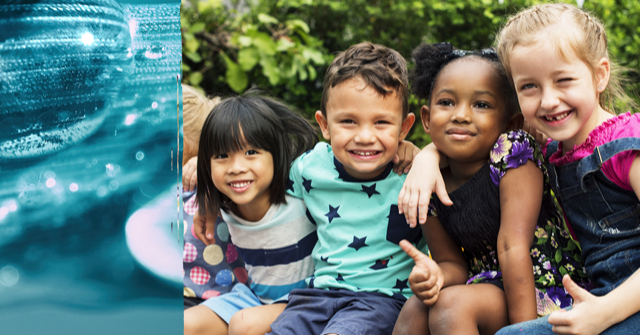A Closer Look at Early Childhood Education

Education is a life-long endeavor, and here at the Calabasas, California-based MUSE Global School, we strive to foster a love of learning from a very early age. That’s why we are proud to offer our accredited Early Childhood Education (ECE) program to the youngest of learners, beginning at 2.5 years of age and taking them through to Kindergarten once they reach 5 years old.
Small Beginnings
A formal MUSE Global education begins in our Early Childhood Class (ECC) for students from 2.3 years old to 3.7 years old. This program has been created especially for first-time classroom goers, and exists to form the foundation on which all of their learning will be built. In ECC, children learn how to learn, and start to cultivate the skills they will use throughout their education at MUSE.
In ECC, students get to experience all of the quintessential subjects they will continue to study throughout their academic lives – language, literacy, math, science, and social studies. Students in Early Childhood Education begin to develop a love of literacy through stories, songs, and poems. They learn to both share their thoughts and opinions in productive ways as well as become active listeners and maintain focus. They learn to recognize the letters in their name and even write them down. They begin to understand what numbers are and look like, and start to recognize patterns. They take hikes through our beautiful Los Angeles campus and start to make observations about the natural world around them. They are encouraged to ask questions – who, what, when, where, why, how – and start to recognize themselves as individuals and important members of the MUSE community.
Moving Up
Once students reach 3 years and eight months of age, they are ready for our Early Kindergarten (EK) program. In Early Kindergarten, children directly build upon what they have been learning in ECC. They form meaningful relationships and actively engage with peers, friends, and teachers, and ask questions in order to get what they need – be it help with something they are working on, or a clearer understanding of something being taught. They become active participants in pre-reading, gaining the ability to retell a story read to them and answering questions about it when asked. They expand their range of number skills and learn to recognize concepts like “more” and “less.” They become inquisitive thinkers, and begin to notice and appreciate diversity amongst their classmates and celebrate the differences that make us all unique.
Little Big Kids
At five years old, students are finally ready to enter Kindergarten, where all of the valuable skills they have been developing in ECC and EK are really put to use. By the time they reach Kindergarten, students have gained the confidence to actively participate, as well as listen, during classroom discussions. They are beginning to read words on a page and can understand how illustrations in a book relate to the story being told. Their number skills are continuing to flourish, and by this stage they are learning to count all the way to 100 by both 1s and 10s. They participate in scientific experiments, and can recognize states of matter by looking at ice, water, and steam. They begin to study maps, and can identify the difference between land masses and bodies of water. They start to communicate about the things they learn, both in conversation and through drawings. As kindergarteners, children take that big step from preschoolers to elementary students, and their individuality really starts to shine through.
Passion Projects in ECC, EK, and Kindergarten
Our award-winning Early Childhood Education programs are designed to do what we do best here at MUSE: instill our students with a passion for learning that will last throughout their lifetimes (in fact, passion-based learning is one of our Five Pillars!). Like all MUSE curricula, our ECE programs focus on child-based learning and highlight the individual interests and personalities of each MUSE student. We know that developing social and emotional skills is at the core of a young child’s education, and our programs are designed to encourage our students to learn not only with, but from, one another. In each classroom, the children are emboldened to explore and ask questions about whatever inspires them, and in this way, their passions mold both their individual and classroom projects.
Advantages of Early Childhood Education at MUSE Global
There are a ton of reasons to enroll your child in ECE. Young children grow and change so quickly, soaking up the world around them and learning every second of the day. By participating in ECE programs, your child will have the opportunity to connect with their peers and form friendships that could last throughout their lives. ECE students are exposed early on to different perspectives and ideas, and learn to both think critically and be comfortable with a multitude of perspectives, many of which will be different than their own. They gain valuable life skills like independence and patience, making them kinder, more tolerant adults. And since MUSE Global is a private school, your child would also reap the benefits of having a smaller class size and more face time with their teacher.
Learn more about the benefits of early childhood education or inquire about our Early Childhood Education programs.

